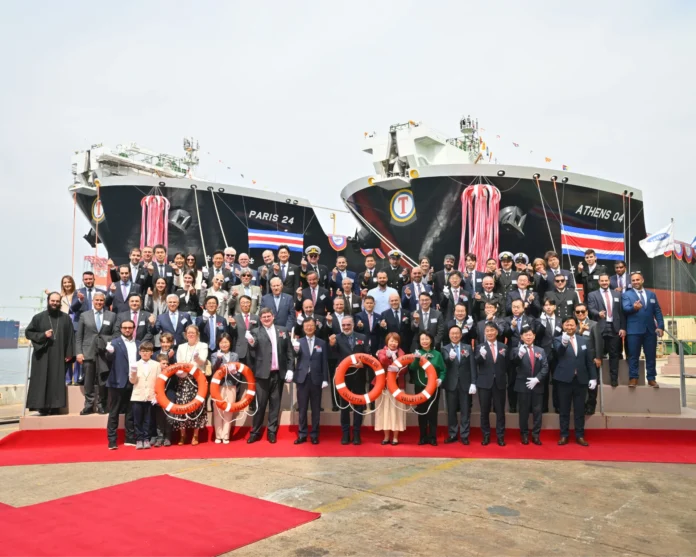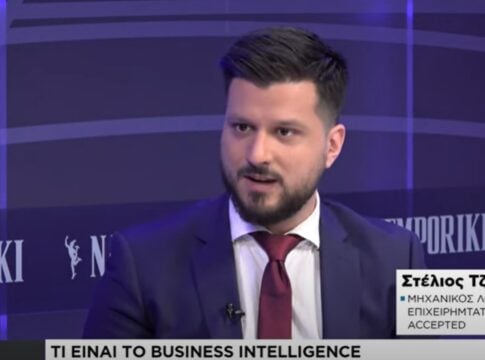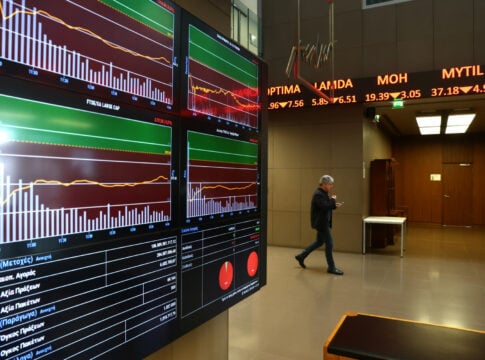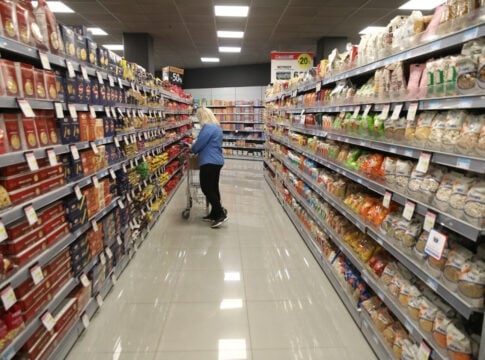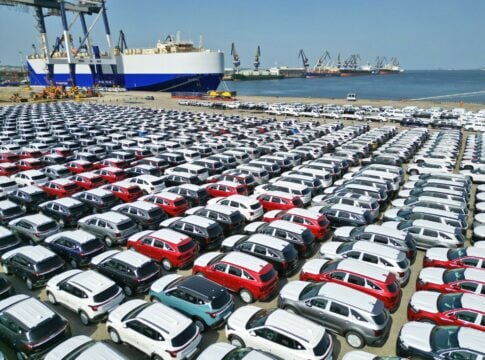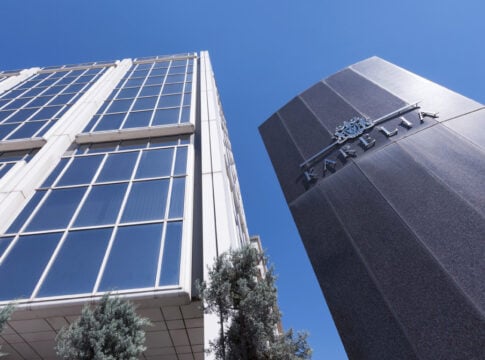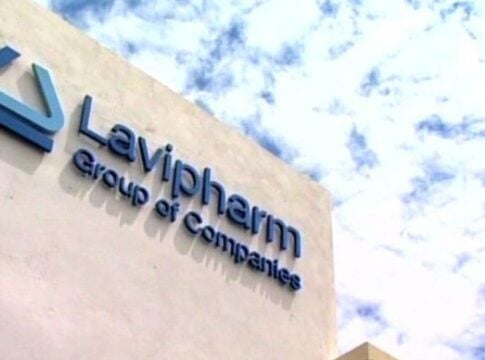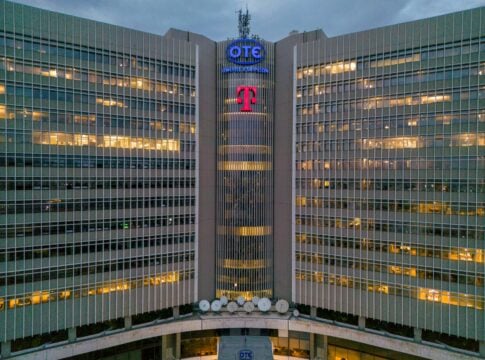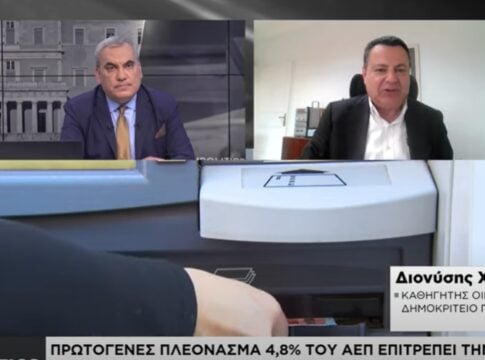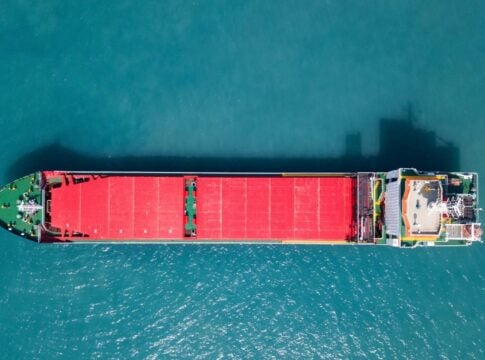A ship delivery in South Korea, a double milestone, the fleet of 16 Suezmax Shuttle tankers, investments exceeding 2.3 billion dollars, and contracted revenues of 2.5 billion dollars were presented by the mission of Tsakos Energy Navigation (TEN) at the Samsung shipyards.
The naming ceremony and delivery of the new tankers from Samsung’s shipbuilding yards in South Korea was a historic moment for TEN, the Greek-owned shipping company listed on the NYSE.
The company, one of the largest independent tanker operators in the world, held the naming ceremony for the DP2 Suezmax Shuttle tanker “Athens 04” as well as for “Paris 24.” Naftemporiki was present at the event.
Both tankers are chartered to Total. The “Athens 04” is the 100th vessel the Greek shipping group has delivered from South Korean shipyards, and at the same time, it is the first one built by Samsung Heavy Industries.
According to information provided to “Naftemporiki,” a total of 12 DP2 shuttle tankers will be built at Samsung Heavy Industries’ shipyards. Nine of these are part of the major agreement recently signed with the Korean shipyards for the construction of nine DP2 shuttle tankers, which have been bareboat chartered by the oil giant Petrobras for a period of 15 years.
The 12 Suezmax-type shuttle tankers in total — with the delivery of Anfield also expected — will secure TEN contracted revenues of over 2.5 billion dollars for the coming years. After the delivery of these vessels, the company’s fleet of this type of tanker will reach 16 ships, establishing TEN as one of the leading operators in the world.
Regarding the company’s major investment program in DP2 Shuttle Tankers, the founder and CEO of Tsakos Energy Navigation, Dr. Nikos Tsakos, stated to “Naftemporiki”:
“Shipping today is moving more and more toward specialized vessels. As oil drilling from floating platforms moves into deeper waters, ships of this type are needed — ships that represent the latest in maritime technology. They are equipped with systems that allow them to remain stable even in rough seas, right next to floating platforms. This is a market that is continuously growing, and we believe that growth will not slow down, particularly in regions such as the North Sea, then Brazil, and also Africa.”
At the same time, TEN’s big deal with Samsung for the nine DP2 Shuttle tankers reached 1.3 billion, with the vessels chartered to Petrobras under bareboat contracts for a period of 15 years.
Following this move, the company’s investment program amounted to 2.3 billion dollars, while the initial planning for the renewal of the TEN fleet mentioned investments of 2 billion dollars by 2030.
Tsakos pointed out to “N”: “The last agreement we made with Transpetro (Petrobras) significantly expanded the budget. We always do jobs that have long-term charters and that can stand on their own at any time. After more than 30 years in the stock exchange, we have proven that we know how to avoid bad situations, while at the same time strengthening our relationships with major customers.”
Asked to comment on the shipping market, in relation to the tariffs and fees that have been multiplying rapidly in recent months, Tsakos noted:
“Look, in shipping we are the ‘truckers of the seas’, as graphic as it may sound. The more obstacles there are on the seas, the harder our job becomes. We want open seas and open trade. We are in the 21st century, and it would be better to look ahead — toward unification, toward what was once called the globalization of trade — rather than building walls as we did 50 or more years ago.”He added: “In any case, I believe that Greek shipping will successfully meet the challenges once again. As the saying goes, every obstacle is for the best. After all, as a people and by nature, we are characterized by adaptability. But open seas are in the best interests of the global economy, global trade, and, of course, shipping itself.”


